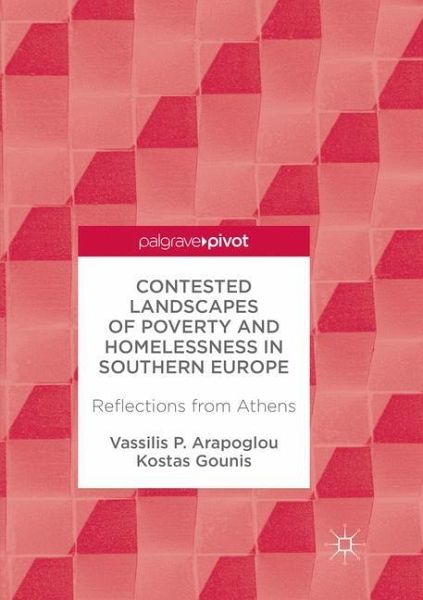
Contested Landscapes of Poverty and Homelessness In Southern Europe
Reflections from Athens
Versandkostenfrei!
Versandfertig in 6-10 Tagen
38,99 €
inkl. MwSt.
Weitere Ausgaben:

PAYBACK Punkte
19 °P sammeln!
The book uses Athens as a case study to identify the key features of urban anti-poverty policies in Greece and to discuss them in relation to policy developments in the crisis-ridden countries of Southern Europe. The idea of contested landscapes shapes the focus of the book on urban poverty and homelessness. Contested landscapes refer to the complex dynamics between visible and invisible poverty and to competing strategies on how to address them. The book takes a path-dependent view on the development of post-welfare arrangements, devolution, and pluralism that are being shaped by both neolibe...
The book uses Athens as a case study to identify the key features of urban anti-poverty policies in Greece and to discuss them in relation to policy developments in the crisis-ridden countries of Southern Europe. The idea of contested landscapes shapes the focus of the book on urban poverty and homelessness. Contested landscapes refer to the complex dynamics between visible and invisible poverty and to competing strategies on how to address them. The book takes a path-dependent view on the development of post-welfare arrangements, devolution, and pluralism that are being shaped by both neoliberal mentality, solidarity and communitarian practices. The authors draw on their own research and advocacy background in New York and Athens to shape their conceptual and methodological tools; however, rather than uncritically 'importing' North American and North European concepts to Greece, the book highlights the significance of distinctive Mediterranean features for analysing homelessnessand anti-poverty policies. This will be a useful read for academics policy makers in areas of urban studies, sociology, social policy, human geography and anthropology.












